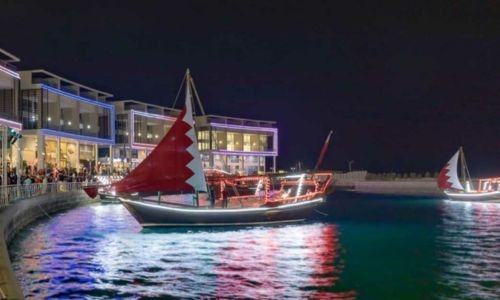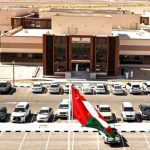Bahrain’s Economy Shifts from Oil Dependence to Diversification
Bahrain’s economy is undergoing a significant transformation, moving away from its traditional reliance on oil to embrace a more diversified path. The World Bank has forecasted a 3.5% growth rate for 2024, indicating that the non-oil sector will surpass the oil industry in terms of driving economic growth. This shift is primarily fueled by advancements in manufacturing, construction, and government services, highlighting the importance of diversification in ensuring the country’s economic stability.
Despite the continuing significance of hydrocarbon revenues, Bahrain’s future prosperity hinges on its ability to maintain this diversification amidst fluctuating energy prices and fiscal pressures. The non-oil sector is projected to experience an annual growth rate of approximately 3.4%, driven by progress in key areas such as manufacturing and construction. This growth trajectory is not only promising but also essential for reducing the country’s dependence on oil, which is subject to global market volatility.
To achieve its economic targets for 2023 and 2024, Bahrain has implemented various measures to foster diversification and control spending. In the first three quarters of 2023, the economy expanded by 2%, with non-oil sectors growing by 3.1%. Additionally, the current account surplus reached $2 billion, equivalent to 6.4% of GDP, signaling a positive trend in the country’s economic performance. These achievements underscore the effectiveness of Bahrain’s efforts to transition towards a more diversified and sustainable economic model.
The transformation of Bahrain’s economy is evident in the growth of key sectors such as manufacturing, construction, and government services. Manufacturing, in particular, has seen significant advancements, driven by investments in technology and innovation. The construction sector has also experienced robust growth, fueled by infrastructure projects and urban development initiatives. Furthermore, government services have played a crucial role in driving economic diversification, with the public sector contributing to job creation and social welfare programs.
As Bahrain navigates through the challenges of fluctuating energy prices and fiscal pressures, maintaining the momentum of diversification is crucial for sustaining economic growth. The country’s resilience and adaptability in diversifying its economy will determine its ability to weather external shocks and ensure long-term stability. By prioritizing investments in key sectors and strengthening its economic infrastructure, Bahrain can continue on its path towards a more sustainable and diversified economy.
In conclusion, Bahrain’s economy is undergoing a significant transformation, transitioning from oil dependence to a broader, diversified path. With the non-oil sector poised to surpass the oil industry in driving economic growth, the country’s future prosperity relies on maintaining this diversification amidst global economic uncertainties. By setting ambitious economic targets, implementing effective policies, and investing in key sectors, Bahrain is paving the way for a sustainable and resilient economy that can withstand future challenges.





















